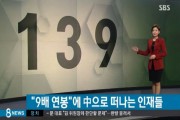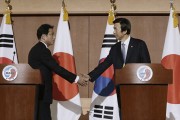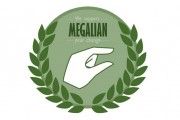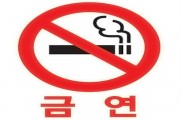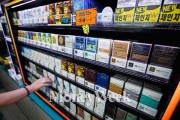Cigarette Prices to Increase from ₩2,500 to ₩4,500 in Anti-Smoking Plan Aimed at Cutting Smoking Rate to 20% By 2020

The average smoking rate for South Korean male adults is 37.6 percent, compared to 24.9 percent among OECD nations. The price per pack of cigarettes in South Korea is ₩2,500, compared to an average of ₩7,000 for OECD nations.
The government has decided to raise the cigarette price by ₩2,000 with the aim of reducing the current smoking rate to within the 20 percent range. Critics denounce it as an indirect tax hike to make up for the fiscal deficit. Smokers standing against the new proposal heralds a bumpy road for the proposed hike passing through parliament.
On September 11, the government decided to raise the cigarette price to ₩4,500 from the current ₩2,500, a price that has remained unchanged over the past decade. Under the new plan, tobacco prices are pegged to consumer prices, and are expected to rise steadily.
The proposed hike, the government claims, is aimed at cutting the smoking rate but there is growing suspicion that the hike in cigarette price is designed to levy more taxes to make up for the government’s fiscal deficit, as the hike includes increased taxes and various duties.
The government’s actions are justifiable from the perspective of protecting public health, but critics say that the tobacco price increase is an indirect tax.
Specifically, critics see the government’s proposal as pushing to increase one of the “sin taxes”–referring to taxation on liquor, and tobacco, instead of increasing direct taxes, like corporate or income taxes. Increases on these direct taxes have been strongly opposed. This critical view heralds the difficulty of the bill’s passage in parliament.
On Sept. 11, the government announced the anti-smoking policy in a meeting attended by economic ministers, and hosted by Finance Minister and Deputy Economic Premier Choi Kyung-hwan. They decided to raise the current cigarette price from ₩2,500 to ₩4,500.
Minister of Health Moo Hyung-pyo said in the meeting, “The nation has an alarmingly high smoking rate, and in particular the youth smoking rate is close to the average smoking rate for adults in other OECD nations. This leads to societal issues including premature deaths and financial problems. The government aims to slash the present smoking rate of 37.6 percent to within 20 percent by 2020 by using pricing and non-pricing methods.”
Mr. Moon has long contended that a significant drop in the smoking rate would be possible if cigarette prices were increased ₩2,000 to ₩4,500, but the Finance Ministry has proposed a ₩1,500 increase in consideration of a possible adverse impact on the working class. The government adopted Mr. Moon’s suggestion in its new anti-smoking policy.
The cigarette prices in South Korea are the lowest among advanced nations, while its smoking rate is among the highest.
A tobacco regulatory committee affiliated with the European Union conducted a survey of prices of the most popular cigarette brands in the 22 member nations of the Organization for Economic Cooperation and Development (OECD). The survey showed South Korea had the cheapest price at ₩2,500 per pack.
The result is the same when the survey reflects inflation-adjusted prices. In addition, when it comes to the proportion of taxes reflected in tobacco prices, South Korea’s 62 percent is well below the the World Health Organization (WHO) recommended 70 percent.
Aside from increasing the price, the government has also decided to prohibit designs and phrases that encourage smoking from being attached to cigarette packs, and is placing big warning labels on the packs.
[…]
The hike in the cigarette prices is projected to bring about a 34 percent decrease in tobacco sales when the price elasticity of cigarettes is calculated to be 0.425, generating about ₩2.8 trillion in extra tax revenue, and leading to a 0.62 percent point rise in consumer prices.

A survey, conducted Sept. 16-17 for 1,050 adults nationwide, shows that the public is divided over what motivated the government to propose a ₩2,000 increase in the cigarette prices. 39.4 percent said the hike is for the purpose of tax collection, while 33.2 percent said the new plan is aimed at protecting public health. 23.0 percent said the government seeks to attain both goals.
Comments From Daum :
tysco7111:
The government acts like a thief, seeking to fill the fiscal deficit by extracting money from ordinary people’s pockets. Protecting public health is important, but the government would do well to scrap the previous tax reduction for the wealthy.
내가니친구냐:
Double the price of soju. Booze-related crimes are increasing. Increase the oil price to ₩5,000 per liter. Emissions from too many cars on the streets are giving us lung cancer.[…]
1001:
If the government is truly protecting public health, quadruple the current cigarette price, or stop tobacco production. In the end, this is just for collecting more taxes.
Weeeee:
Wouldn’t they use taxes generated from the hike in cigarette price to make up for the deficit from pension funds for public officials? [All South Korean citizens are required to subscribe to state pensions. But unlike retirement pension for ordinary people, the pension program for public servants is criticized for receiving generous fiscal assistance from the government.]
박재욱:
The price hike will kill poor and disadvantaged people in our society.
sundans:
The government claims the smoking rate of our nation is among the highest, but the smoking rate for adults, including females, drops to sixth among the 19 OECD nations. It also contends that Korea has the cheapest cigarette price in the OECD nations, but it is not cheap compared to our per capita income or minimum wage.

A Korea Tobacco and Ginseng (KT&G) employee grabs a handful of cigarettes for packaging. The tobacco manufacturer has been a private company since 2002.
Comments From Naver:
masa****:
When the liberal president Roh Moo-hyun announced a ₩500 increase in cigarette price, the head of the main opposition Grand National Party [which is the predecessor of the current Saenuri Party] said during a Blue House meeting with President Roh, “Soju and cigarettes are favored by the working class. The price hike is making people depressed.”
alq4****:
When the nation has a minimum wage that’s less than half [of the average for OECD nations], if the cigarette prices have to become equal [to that of OECD nations], doesn’t it equal stealing money from the working class?
jjha****:
I bet that the smoking rate will drop. People around me bitterly say that they’d quit smoking.
jung****:
I am for it. Smoke from cigarettes on streets brings nothing but harm and is damn irritating!
csih****:
For the sake of our children’s health, we should quit smoking. What will we pass on to our children? Smoking???”>
next****:
Am I alone in thinking that a staggering number of working hours and ultra-high intensity of work has made the smoking rate higher?
ljy_****:
The hourly pay remains the same in South Korea, but cigarette prices are made to be similar to that of foreign countries.

